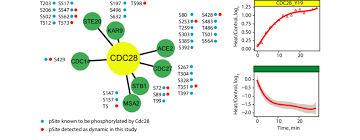
Introduction
The Centers for Disease Control and Prevention (CDC) plays a critical role in public health management, not just in the United States but also influencing global health strategies. As countries around the world face increasingly complex health challenges, the CDC’s research, guidelines, and intervention strategies are more important than ever. Recent global events, such as the COVID-19 pandemic, have highlighted the need for swift and effective public health action, putting organizations like the CDC in the spotlight.
Recent Developments and Initiatives
In 2023, the CDC has taken significant steps to adapt its strategies in response to the evolving health landscape. With the ongoing threat of emerging infectious diseases and the implications of climate change on health, the agency has broadened its focus. In March, the CDC launched a new initiative aimed at enhancing the surveillance of respiratory illnesses, which gained renewed attention post-COVID. This initiative emphasizes early detection and rapid response capabilities, a crucial factor in minimizing outbreaks.
Moreover, the CDC has ramped up its partnership with international health organizations, such as the World Health Organization (WHO) and Health Canada, to strengthen responses to global health issues. During a recent conference, CDC Director Dr. Rochelle Walensky highlighted the importance of collaborations across borders, stating, “In today’s interconnected world, a threat in one country is a threat to all.”
Impact on Public Health Policies
The CDC’s guidelines heavily influence health policies in many countries. For instance, during the recent monkeypox outbreak, the CDC swiftly issued recommendations for vaccination, contact tracing, and public awareness campaigns that were adopted by various health departments globally. These actions serve as a blueprint for how public health agencies can mitigate the spread of infectious diseases.
Additionally, the agency has emphasized the significance of preventative measures through campaigns focused on vaccination efforts against flu and other transmissible diseases. As public panic over outbreaks tends to spike, the CDC seeks to educate the public on the importance of immunization and overall health practices.
Conclusion
The significance of the CDC cannot be overstated. As the agency continues to evolve in response to new health challenges, its resources and guidelines remain essential tools for governments and health agencies worldwide. The future will likely see an increased reliance on data-sharing and collaborative strategies as public health concerns transcend borders. For Canadians and global citizens alike, understanding the CDC’s role is crucial in navigating ongoing and future health landscapes.



